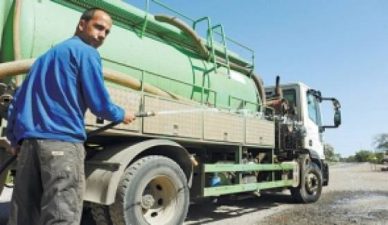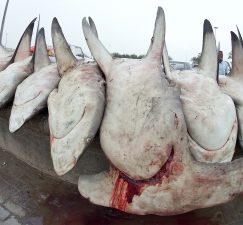 The Sea of Galilee is known for its tempestuous storms and thriving fishing industry. But life there is changing with less rain and almost no fish left.
The Sea of Galilee is known for its tempestuous storms and thriving fishing industry. But life there is changing with less rain and almost no fish left.
The lowest in the world and Israel’s only freshwater lake, the Sea of Galilee is fed by the Jordan River and supplies much of the region’s water. Famously the site for many of Jesus’ sermons, it also has a long fishing history. In the first century, the historian Flavius Josephus wrote that 230 fishing boats thrived on the lake. Twenty centuries later, the lake is at risk of being emptied of all its fish. This news just in from the Jerusalem Post.The Agriculture and Rural Development Ministry has issued temporary fishing licenses to fishermen in order to buy time. In between now and February 28, 2011, when the licenses will expire, the Knesset economic committee must decide what to do about the unprecedented low fish stock levels.
In just one decade, fish stocks dropped by almost 2,000 tonnes from 2,144 in 1999 to just 156.8 in 2009.
Apart from impacting on the livelihood of local fishermen, which is serious enough, what are the ecological effects of an over-fished lake?
According to the UN Food and Agriculture Organization, at least two:
- Excessive fishing can reduce spawning biomass of a fishery below desired levels such as maximum sustainable or economic yields.
- Continued overfishing can cause changes in species composition and biodiversity can occur with progressive reduction of large, long-lived, and high value predator species and the increase in small, short-lived, and lower value pelagic and demersal prey species, a process described as ‘fishing down the food chain’ (This is especially relevant for ocean species).
Last year a fishing ban was put in place in order to increase fish stock. It remains to be seen whether similar action will be taken this year.
Compounding the lake’s ecological health are low water levels, presently at their lowest since the 1920s. Although last year between March and June the lake levels were above the “red line” – below which levels are thought to be particularly bad – lack of rain has kept levels devastatingly low. This despite efforts to cut back on the amount of water pumped out of the lake.
Last year, Lake Kinneret only received, on average, 60% of its annual rainful.
More on the Sea of Galilee:
Israel Bars Fishing In The Sea Of Galilee
Fashion Contest Inspired By The Sea Of Galilee
Israel Becomes A Nation Of Cycling Freaks
image via the holy land




Why Do we Allow This?
In This Increasing Anti Semite World And The Economic Isolation Of Israel
The Securing Of Israel’s Beef Industry Has Become A Vital Strategic Need
One of our purposes of the Israel Longhorn Project is to decrease the amount of European cattle on Israeli Ranches and replace them with fewer but more effective desert crossbred or purebred Texas Longhorn cattle. This will allow us to use less land, feed and water necessary for raising cattle. Lowering meat costs for the consumer and improving meat quality while raises profits by decreasing losses and expenses. Plus, making organic meat easier to produce.
Texas Longhorns will decrease losses due to predators such as jackals and wolves simply by threatening them with their sharp horns. Texas Longhorn babysits each other’s calves.
Texas Longhorns are desert cattle; they eat many of the shrubs that create a fire problem for our forests.
I can get the embryos to Israel within a week to ten days with your help.
We need a nominal donation of $250 from 1200 generous supporters to reach our goal of $290,000. So please help and spread the word. I cannot do this alone.
I would like to help secure Israel’s food production in this conflict of Civilizations between good and evil.
Robin Rosenblatt M.Sc. Hebrew University, School of Agriculture
The Israel Longhorn Project
Nonprofit 501(c) 3 #74-3177354
22 Yarnall Place
Redwood City, CA 94063
Tel: 650.631.9270
[email protected]
http://longhornproject.org